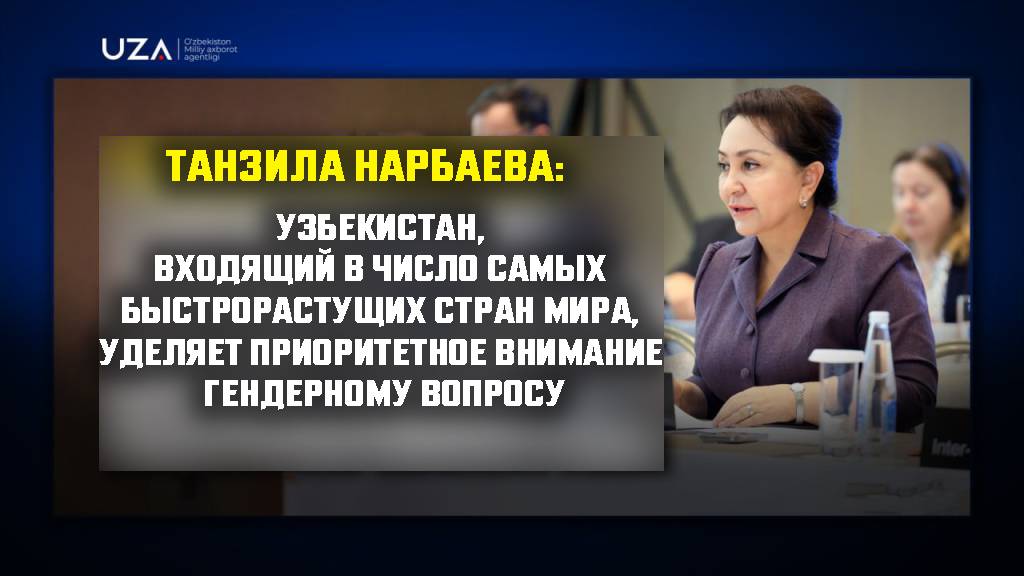
As part of the 150th Assembly of the Inter-Parliamentary Union, the latest session of the Forum of Women Parliamentarians is taking place in Tashkent.
The Forum was officially opened with a welcoming address by the Chairperson of the Senate of the Oliy Majlis of the Republic of Uzbekistan, Tanzila Narbayeva, who congratulated all participants on the Forum’s 40th anniversary.
– For four decades, the Forum has operated effectively within the framework of the Inter-Parliamentary Union, – said Ms. Narbayeva. – We believe that this structure has made a significant contribution to increasing the share of women in parliaments worldwide – from 11.3% to 27.2% over the past 30 years.
The participation of delegations from 120 countries in the current forum reflects its global importance. Gender equality remains a key focus of the Assembly, as any global threat inevitably affects women directly. This is why the issue of gender equality is of critical importance for every country, regardless of its level of socio-economic development. Uzbekistan, being among the world’s fastest-growing nations, also prioritizes this issue.
In a historically short period, under the leadership of President Shavkat Mirziyoyev, a new system and national model have been established in Uzbekistan to strengthen families, ensure legal protection for women, and promote gender equality. This area has become a key priority of state policy. At the constitutional level and within strategically critical national documents, the support of women has been defined as one of the state’s most vital objectives.
A national legal framework aligned with international standards has been developed, along with strong institutional foundations. A comprehensive, continuous system dedicated to women’s issues has been established, spanning from the national level to the mahallas. In addition, new mechanisms have been introduced to enhance women’s socio-economic activity and provide targeted support.
The effectiveness of the work carried out is evident in the increasing involvement of women across various sectors, including education, entrepreneurship, public administration, and beyond. Currently, more than half of all university students in Uzbekistan are female – a result achieved through state-introduced incentives and support measures for young women.
In recent years, the number of women entrepreneurs has doubled, now exceeding 205,000. Our goal is to promote the broad development of women’s entrepreneurship across various sectors in Uzbekistan, whose economy is growing at a rate of over 6% per year.
The proportion of women in the national parliament has reached 38% – the highest rate in the Asian region – a milestone officially recognized by the Inter-Parliamentary Union.
The national political agenda has identified as a top priority the implementation of special measures aimed at improving the quality of life for women, eliminating various forms of inequality, and preventing violence and discrimination against them.
Today’s global context demands that we all harmonize and intensify our efforts. Uzbekistan stands ready to share its experience in promoting women’s engagement in inter-parliamentary cooperation, particularly at the regional level.
In particular, five years ago, at the initiative of Uzbekistan, the Dialogue of Women Leaders of Central Asian Countries was established. Today, this format has become an effective mechanism for jointly addressing key regional issues related to women. We believe it would be appropriate to integrate this successful experience into the Inter-Parliamentary Union and other regional groups, thereby expanding women’s participation in the development of all regions.
In the context of the Sustainable Development Goals, it would be advisable to assess the progress made toward achieving gender equality in different countries based on concrete indicators and to identify additional measures each state can take to fulfill its commitments. This work should be carried out under the leadership of, and in cooperation with, the Forum of Women Parliamentarians.
Norgul Abduraimova, photo by Nosir Khaydarov, UzA








